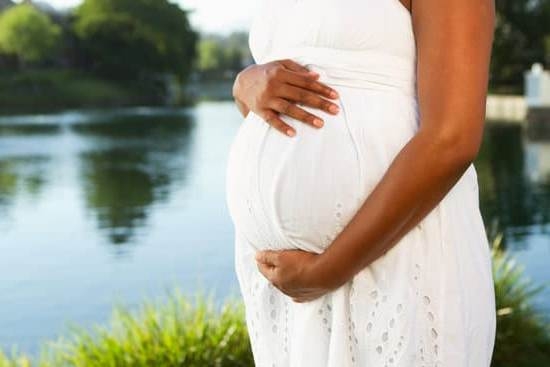What is the first sign of pregnancy? For many women, a missed period is often the initial indication that they may be expecting. Understanding the menstrual cycle is crucial in identifying early signs of pregnancy. Tracking ovulation can also play a significant role in detecting potential pregnancy symptoms sooner rather than later.
The typical menstrual cycle lasts around 28 days, with ovulation occurring midway through. If fertilization occurs during this time frame, the body undergoes various changes to support a developing embryo. Hormonal shifts are key in this process, triggering physical and emotional alterations that may manifest as early signs of pregnancy.
Physical changes in early pregnancy can include symptoms such as breast tenderness, fatigue, and urinary frequency. These indications are often attributed to hormonal fluctuations and implantation processes taking place within the body. Understanding these subtle shifts can help individuals recognize potential signs of pregnancy before taking a formal test.
Physical Changes in Early Pregnancy
Aside from fatigue, another prevalent sign of early pregnancy is breast tenderness or sensitivity. The hormonal fluctuations, particularly increased levels of progesterone, can lead to this discomfort. Women may notice their breasts feeling fuller, heavier, or more sensitive to touch. Some may even experience darkening of the areolas, the area around the nipples. These breast changes are normal and are typically one of the first physical indicators that a woman might be pregnant.
Moreover, in some cases, women may start experiencing nausea and even vomiting as part of morning sickness during early pregnancy. Hormonal shifts play a significant role in triggering these symptoms, causing an icky feeling that can last throughout the day for some individuals. While not every pregnant woman experiences morning sickness to the same extent, it is a common feature in early pregnancy. Staying hydrated and eating small, frequent meals can often help alleviate these symptoms.
| Physical Symptom | Description |
|---|---|
| Fatigue | Overwhelming tiredness due to hormonal changes |
| Breast Tenderness | Increased sensitivity and fullness caused by hormonal fluctuations |
| Morning Sickness | Nausea and vomiting triggered by hormonal shifts |
Emotional Changes and Mood Swings
During the early stages of pregnancy, women often experience a rollercoaster of emotions and mood swings. This can be attributed to the hormonal changes that occur in the body as it adapts to supporting a growing fetus. Some women may find themselves feeling more anxious, irritable, or weepy without any apparent reason. These emotional changes are completely normal and can vary from woman to woman.
Managing mood swings during this time can be challenging, but there are some strategies that may help. Engaging in stress-reducing activities such as yoga, meditation, or deep breathing exercises can promote relaxation and emotional balance. It is also crucial for pregnant individuals to prioritize self-care by getting enough rest, eating well-balanced meals, and seeking support from loved ones. Additionally, talking to a healthcare provider about any concerning emotional symptoms is important for mental health during pregnancy.
Pregnancy is a significant life event that brings about not only physical changes but also profound emotional shifts. Understanding that mood swings are a common part of early pregnancy can help individuals navigate this period with more ease and grace. By acknowledging and addressing these emotional changes, expectant mothers can better cope with the ups and downs of pregnancy while prioritizing their mental well-being.
| Emotional Changes During Early Pregnancy | Mood Swing Management Tips |
|---|---|
| Normal emotional fluctuations are common | Engage in stress-reducing activities like yoga or meditation |
| Pregnancy hormones contribute to mood swings | Prioritize self-care: rest, eat well, seek support |
| Communicate with a healthcare provider about emotional symptoms | Acceptance and acknowledgment of emotional changes are essential |
Signs of Implantation
Implantation is a crucial stage in early pregnancy, occurring approximately 6-12 days after conception when the fertilized egg attaches itself to the uterine lining. This process can often be accompanied by what is the first sign of pregnancy for many women – implantation bleeding.
This light spotting may occur around the time of your expected period and is usually lighter in flow than a typical menstrual period. Some women may also experience cramping or mild abdominal discomfort along with this bleeding, which may last for a few hours to a couple of days.
Understanding Implantation Symptoms
Apart from implantation bleeding and cramping, other symptoms that some women might notice during this early stage include changes in basal body temperature, increased cervical mucus production, and heightened sense of smell or taste. While these signs are not universal and may vary from woman to woman, they can provide important clues indicating that conception has occurred and pregnancy is underway.
It’s essential to pay attention to your body’s signals and consult with a healthcare provider if you suspect you might be pregnant.
Tracking Ovulation for Early Detection
Since implantation typically occurs 6-12 days post-conception and before a missed period, tracking your ovulation cycle can help determine when implantation may occur. By monitoring changes in cervical mucus, basal body temperature, or using ovulation predictor kits, you can increase your chances of identifying the early signs of pregnancy sooner rather than later.
Being aware of these subtle changes in your body can help you prepare emotionally and physically for the journey ahead as you await confirmation through a pregnancy test.
Morning Sickness and Nausea
To better understand how morning sickness and nausea manifest in early pregnancy, here are a few key points to consider:
- Nausea can strike at any time of the day, not just in the morning.
- Foods and smells that were once appealing may suddenly become repulsive.
- Some women may experience vomiting along with nausea, while others may only feel queasy without actually getting sick.
If you find yourself struggling with morning sickness and nausea during pregnancy, there are some strategies you can try to alleviate your symptoms:
- Eat small meals throughout the day to avoid an empty stomach triggering nausea.
- Stay hydrated by sipping on water or clear fluids like ginger tea.
- Avoid strong smells or foods that worsen your nausea.
- Rest whenever possible and listen to your body’s signals for when you need a break.
Remember, every individual’s experience with morning sickness during pregnancy is unique, so it’s essential to find what works best for you in managing these symptoms. Consulting with your healthcare provider can also provide additional guidance and support during this time.
Breast Changes
During the early stages of pregnancy, many women may notice significant changes in their breasts. These changes can be one of the first signs that signal a possible pregnancy. Understanding what to look for can help women identify these symptoms early on. Here are some common breast changes that may indicate pregnancy:
- Increased tenderness and sensitivity: Hormonal fluctuations during pregnancy can lead to increased tenderness and sensitivity in the breasts, similar to symptoms experienced before menstruation.
- Enlargement and fullness: The breasts may also feel fuller and heavier due to an increase in blood flow and milk ducts preparing for breastfeeding.
- Darkening of areolas: The area around the nipples, known as the areolas, may darken during pregnancy due to hormonal changes.
It is essential for women to pay attention to these breast changes, especially if they usually do not experience these symptoms during their menstrual cycle. However, it is important to remember that every woman’s body is different, so not all individuals will experience the same breast changes or at the same intensity. If you suspect you might be pregnant and notice any of these signs, it is advisable to consult with a healthcare provider for confirmation.
In addition to physical breast changes, it is also common for women to experience emotional fluctuations during early pregnancy. Hormonal shifts can lead to mood swings and heightened emotions. Managing stress levels, getting enough rest, and seeking support from loved ones can help navigate these emotional changes effectively. Remember that while breast changes can be an indicator of pregnancy, consulting with a healthcare provider or taking a pregnancy test is the most reliable way to confirm conception.
Urinary Frequency and Fatigue
During the early stages of pregnancy, many women experience an increase in urinary frequency and overwhelming fatigue. These physical symptoms can often be some of the first signs that something is changing in their bodies. The combination of hormonal shifts and increased blood flow to the pelvic area can lead to more frequent trips to the bathroom, sometimes disrupting sleep patterns. It is essential for women to recognize these signs as potential indicators of pregnancy.
Managing Urinary Frequency
The need to urinate more frequently in early pregnancy is due to the uterus putting pressure on the bladder as it expands to accommodate a growing baby. To manage this symptom, it is recommended to drink plenty of water throughout the day but reduce intake before bedtime. Emptying the bladder completely each time can also help minimize urgency and frequency. Kegel exercises, which strengthen pelvic floor muscles, may provide some relief for urinary incontinence.
Fighting Fatigue
The extreme tiredness that often accompanies early pregnancy is a result of hormonal changes, particularly an increase in progesterone levels. To combat fatigue, pregnant individuals should prioritize rest and relaxation, aiming for 7-9 hours of quality sleep per night. Napping during the day and incorporating short breaks into daily routines can also help combat exhaustion.
Proper nutrition and staying hydrated are crucial in maintaining energy levels during this period. By recognizing these symptoms as potential indications of pregnancy, individuals can take proactive steps towards managing them effectively while awaiting confirmation through a pregnancy test.
Taking a Pregnancy Test
In conclusion, the first sign of pregnancy can vary from woman to woman, but one common indicator is a missed period. Understanding the menstrual cycle and tracking ovulation can help detect early signs of pregnancy before a missed period occurs. Physical changes such as breast tenderness, nausea, fatigue, and urinary frequency are also typical symptoms experienced in the early weeks of pregnancy due to hormonal fluctuations.
Emotional changes and mood swings are another aspect of early pregnancy that many women go through. Managing these emotional rollercoasters can be challenging, but seeking support from loved ones and practicing self-care techniques can help alleviate some of the stress. Additionally, recognizing signs of implantation bleeding can provide further clues to potential pregnancy before taking a test.
When ready to confirm suspicions, taking a pregnancy test is crucial. This section provides guidance on when and how to take a test, as well as different types available in the market. It is essential to follow instructions carefully while taking the test for accurate results. Overall, being aware of these early signs and symptoms can help individuals better understand their bodies during this significant time in their lives.
Frequently Asked Questions
How Early Do Pregnancy Signs Start?
Pregnancy signs can start as early as one to two weeks after conception. Some of the earliest signs include missed periods, nausea, fatigue, breast tenderness, and frequent urination. However, these signs can vary from woman to woman.
How Can I Tell if I’m Pregnant After 1 Week?
It may be challenging to tell if you’re pregnant after just one week, as it’s still very early in the pregnancy. Some women may experience implantation bleeding or spotting around this time, but not all do. The best way to confirm pregnancy at this stage is by taking a home pregnancy test after your missed period.
How Early Can You Tell if You Are Pregnant?
Early signs of pregnancy can typically be detected about a week after conception through a blood test that measures human chorionic gonadotropin (hCG) levels. However, most women rely on home pregnancy tests that can detect hCG levels in urine about a week after a missed period.
These tests are usually accurate but may vary depending on when they are taken and how closely their instructions are followed.

Welcome to my fertility blog. This is a space where I will be sharing my experiences as I navigate through the world of fertility treatments, as well as provide information and resources about fertility and pregnancy.





